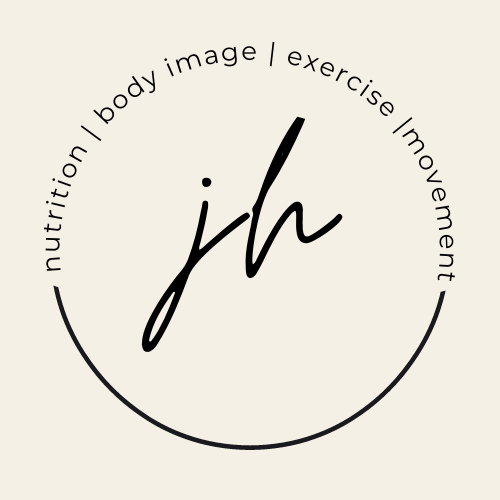Food Journaling: Beyond Counting Calories
With the rise of apps such as Lose It! and My Fitness Pal, food journaling has become a way for people to track their food intake and exercise as a method to track calories in and calories out for weight loss. Thats GREAT - but its not the only thing that’s happening when you write down what you eat… Journaling brings a whole other level of awareness and accountability to your habits, and if you do it correctly, it can be a powerful agent for creating permanent change.
Check out this week's video for my 4 tips for effective food journaling. Everything is included in text below as well.
1. Write in the Moment.
Many times keeping a journal (or using an app), can feel like a chore, so we wait until the end of the day, or the next day and write down everything we’ve eaten retrospectively. We’re busy, it happens - but writing down what you’re doing in the moment, or shortly thereafter, will bring the most awareness to your habits, and give you the opportunity to change something then and there.
2. Don’t Just Write Down What You Eat.
Tell me, does this sound like you when it comes to healthy eating?
“I know what to do, I’m just not doing it.”
If yes, listen up. Of course, with a food journal writing down what you’re eating is important, but it’s worthless if you don’t include a couple of other key factors. HOW you eat, and WHY you eat are just as important (if not more) as what you’re eating.
HOW: In front of the television, in front of the computer, in the car, during a meeting, at the dinner table etc.
WHY: Hunger, sadness, depression, stress, anxious bored etc.
When you tap into the how and the why, you have the power to change lifelong eating patterns that are keeping you stuck.
3. Keep in Touch
One of the powers of food journaling is the ability to get in touch with your hunger and fullness cues. Before you eat, write down your hunger scale (or take a conscious mental note). On a scale from 1-10 how hungry are you? 1 = FULL, 10 = STARVING. Rate yourself again after you eat.
There is no right or wrong answer, but you will likely notice some patterns; AKA opportunities to change.
4. Reflect
At the end of each day or week, reflect on the food journal and notice patterns and opportunities. Sure you might see that your diet is lacking in vegetables, but you also might see that your food choices are mainly driven by stress, and not hunger. In that case, maybe you would benefit more from stress reduction techniques than an overhaul in your diet.
Beyond the Journal
If you’re like me, the thought of doing this for the rest of your life sounds like torture. Ultimately, a food journal is just a tool to keep you aware and honest. And if you can keep awareness and honestly present at every meal or snack - you can throw away the journal. Check out my post about mindful eating for some tips on how to do that.
Now, I'm going to challenge you: Keep a Food Journal using this 4 tips for 1 week. Then let me know - what did you notice? Did it help clarify your goals? I'd love to hear from you!
